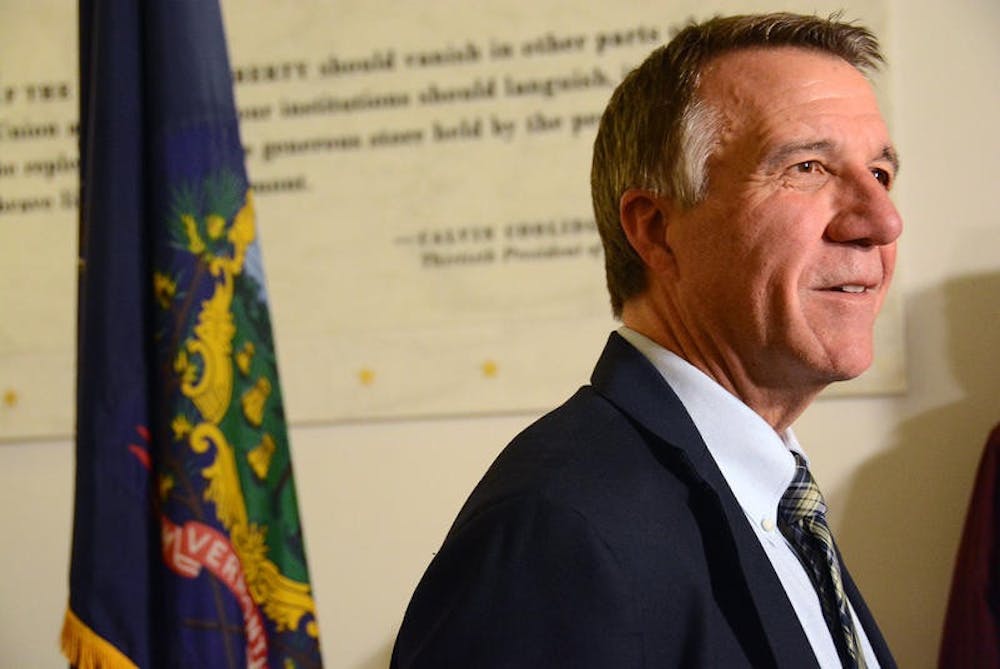Following threats of a federal crackdown on marijuana, Republican Gov. Phil Scott signed recreational marijuana use into law today, making Vermont the first state to legalize marijuana through an elected body rather than through a ballot initiative or voter referendum.
On Jan. 4, just hours after U.S. Attorney General Jeff Sessions announced his intention to limit recreational marijuana use nationwide, the Vermont House swiftly voted 83–61 to legalize possession of marijuana in the state. The Vermont Senate then approved the measure via voice vote. Scott had previously vetoed a senate proposal to legalize marijuana last May, but has since shifted his stance after this most recent proposal.
Vermont is now the eighth state plus Washington D.C. to legalize the recreational use of marijuana.
This bill will allow individuals over the age of 21 to possess up to one ounce of marijuana, grow up to two mature marijuana plants at home, and cultivate four immature marijuana plants. All of these measures will go into effect on July 1.
But unlike all other states in which recreational use of marijuana is legal, Vermont’s bill lacks guidelines to set up a commercial market for marijuana, thus still making it illegal to sell marijuana in the state. Instead, Gov. Scott will set up a committee to examine taxing methods, commercial value and general logistics of a potential venture into recreational sale of marijuana.
Despite last year’s veto, the governor had already expressed his desire to sign the bill into law prior to Monday. While the bill comes as a result of a Democratic legislature, Senate president pro tempore Tim Ashe took time to thank those who opposed the bill, citing the opposition pressure as “a step in a process to a more rational system.”
Even though many on the Democratic side of the aisle had hoped for the creation of retail marijuana markets, the version today still stands as significant progress for advocates of marijuana legalization.
Matt Simon, a legislative analyst for the Marijuana Policy Project, called the signing of the bill as a “big step forward in Vermont.” However, Simon said that Vermont has a long way to go to maximize the benefits of legalizing the recreational use of marijuana.
While the bill does ensure that those with small amounts of marijuana in their possession won’t be charged with a crime, it does little to mitigate the illegal production and sale of marijuana. Simon, along with the Vermont Coalition to Regulate Marijuana (VCRM), is instead working to set up a retail market for recreational marijuana similar to that in California or Colorado. According to the VCRM, doing so would “create jobs, produce tax revenues, and stimulate local economies.” Whether this venture into the market occurs remains to be determined by Scott’s special committee.
The bill is a reflection of a larger movement towards marijuana legalization across New England. Maine and Massachusetts have already passed legalization measures while New Hampshire is currently undergoing the process. Rhode Island and Connecticut are also looking to begin the legalization process later this year.
In an announcement on Monday, Scott clearly outlined the implications of the bill’s passage for Vermonters. Although the consumption and cultivation of marijuana will be authorized come July with his signature, Scott emphasized in a statement to Vermont’s General Assembly that it remains a controlled substance, and that selling it in Vermont is still prohibited.
“Today, with mixed emotions, I have signed H.511,” said Scott in a statement on Monday. “I personally believe that what adults do behind closed doors and on private property is their choice, so long as it does not negatively impact the health and safety of others, especially children.”
The legislation decriminalizes personal use of marijuana for Vermonters over the age of 21, but simultaneously creates stricter policies on other instances of the substance’s use. Marijuana remains a Schedule I substance, alongside others such as heroin and LSD. In coming to a compromise over the bill, Scott successfully negotiated for criminal penalties against individuals who sell or make available marijuana to individuals under the age of 21.
Vermont Lawmakers Legalize Recreational Marijuana Use

ANGELA EVANCIE/VPR
Vt. Gov. Phil Scott signed the bill into law today.
Vt. Gov. Phil Scott signed the bill into law today.
Comments



